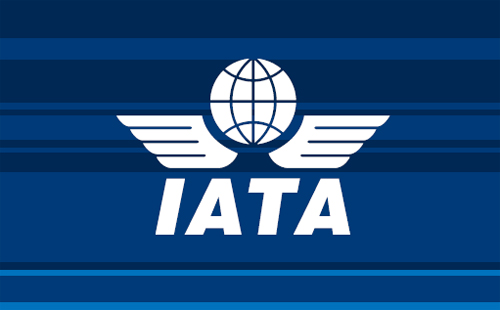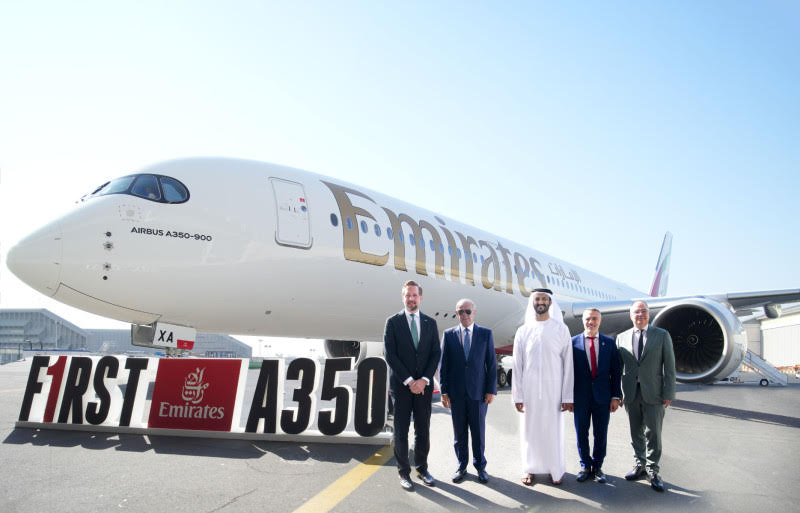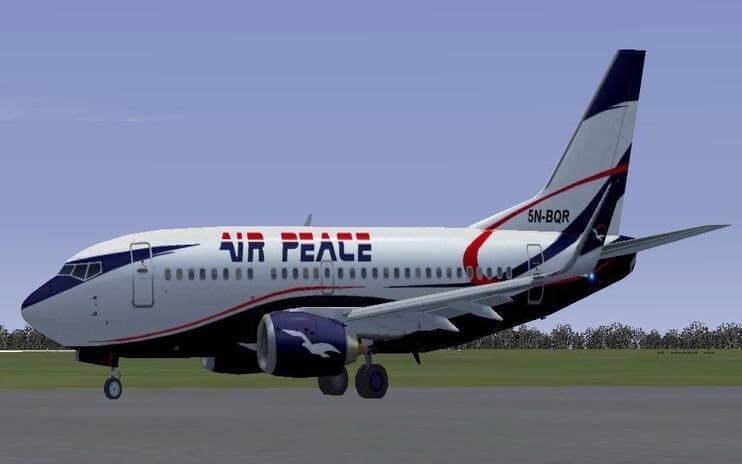Travel/Tourism
Global Airline Profits To Hit $29.8m in 2017—IATA


By Modupe Gbadeyanka
The International Air Transport Association (IATA) has declared that it expects the global airline industry to make a net profit in 2017 of $29.8 billion.
On forecast total revenues of $736 billion, that represents a 4.1 percent net profit margin.
This will be the third consecutive year (and the third year in the industry’s history) in which airlines will make a return on invested capital (7.9%) which is above the weighted average cost of capital (6.9%).
IATA revised slightly downward its outlook for 2016 airline industry profitability to $35.6 billion (from the June projection of $39.4 billion) owing to slower global GDP growth and rising costs. This will still be the highest absolute profit generated by the airline industry and the highest net profit margin (5.1%).
“Airlines continue to deliver strong results. This year we expect a record net profit of $35.6 billion. Even though conditions in 2017 will be more difficult with rising oil prices, we see the industry earning $29.8 billion. That’s a very soft landing and safely in profitable territory. These three years are the best performance in the industry’s history—irrespective of the many uncertainties we face. Indeed, risks are abundant— political, economic and security among them. And controlling costs is still a constant battle in our hyper-competitive industry,” said Alexandre de Juniac, IATA’s Director General and CEO.
“We need to put this into perspective. Record profits for airlines means earning more than our cost of capital. For most other businesses that would be considered a normal level of return to investors. But three years of sustainable profits is a first for the airline industry. And after many years of hard work in restructuring and re-engineering the business the industry is also more resilient. We should also recognize that profits are not evenly spread with the strongest performance concentrated in North America,” said de Juniac.
2017
While airline industry profits are expected to have reached a cyclical peak in 2016 of $35.6 billion, a soft landing in profitable territory is expected in 2017 with a net profit of $29.8 billion. 2017 is expected to be the eighth year in a row of aggregate airline profitability, illustrating the resilience to shocks that have been built into the industry structure. On average, airlines will retain $7.54 for every passenger carried.
Expected higher oil prices will have the biggest impact on the outlook for 2017. In 2016 oil prices averaged $44.6/barrel (Brent) and this is forecast to increase to $55.0 in 2017. This will push jet fuel prices from $52.1/barrel (2016) to $64.9/barrel (2017). Fuel is expected to account for 18.7% of the industry’s cost structure in 2017, which is significantly below the recent peak of 33.2% in 2012-2013.
The demand stimulus from lower oil prices will taper off in 2017, slowing traffic growth to 5.1% (from 5.9% in 2016). Industry capacity expansion is also expected to slow to 5.6% (down from 6.2% in 2016). Capacity growth will still outstrip the increase in demand, thus lowering the global passenger load factor to 79.8% (from 80.2% in 2016).
The negative impact of a lower load factor is expected to be offset somewhat by a strengthening of global economic growth. World GDP is projected to expand by 2.5% in 2017 (up from 2.2% in 2016). Along with structural changes in the industry, this is expected to help stabilize yields for both the cargo and passenger businesses. This is a welcome development as yields (calculated in dollar terms) have fallen each year since 2012.
There is some optimism over the prospects for the cargo business in 2017. The break in falling yields and a moderate uptick in demand (3.5%) will see cargo industry volumes reach a record high of 55.7 million tonnes (up from 53.9 million tonnes in 2016). Industry revenues are expected to rise slightly to $49.4 billion (still well below the $60 billion level of annual revenues experienced in 2010-2014). Trading conditions remain challenging.
“Connectivity continues to set new records. We expect nearly 4 billion travelers and 55.7 million tonnes of cargo in the coming year. And almost 1% of global GDP is spent on air transport—some $769 billion. Air transport has made the world more accessible than ever and it is a critical enabler of the global economy,” said de Juniac.
“Governments, however, do not make aviation’s work easy. The global tax bill has ballooned to $123 billion. Over 60% of countries put visa barriers in the way of travel. And the total number of ticket taxes exceeds 230. Billions of dollars are wasted in direct costs and lost productivity as a result of inefficient infrastructure. These are only some of the hurdles which confront airlines. Our aim is to work in partnership to help governments better understand and fully maximize the social and economic benefits of efficient global air links,” said de Juniac.
2017 Regional Analysis
North American carriers: The strongest financial performance is being delivered by airlines in North America. Net post-tax profits will be the highest at $18.1 billion next year, although down slightly from the $20.3 billion expected in 2016. The net margin for the region’s carriers is also expected to be the strongest at 8.5% with an average profit of $19.58/passenger. In 2017 capacity offered by the region’s carriers is expected to grow by 2.6%, slightly outpacing expected demand growth of 2.5%. Recent consolidation continues to underpin the region’s strong profitability, even as the region faces upwards cost pressures which include the price of fuel.
European carriers: Airlines based in Europe are expected to post an aggregate net profit of $5.6 billion in 2017 which is below the $7.5 billion for 2016. Nonetheless, carriers there are forecast to generate a 2.9% net profit margin and a per passenger profit of $5.65. There remains a significant gap between the performance of the region’s carriers and the performance of North American ones. Capacity in 2017 is expected to grow by 4.3%, ahead of demand growth which is forecast at 4.0%. The region is subject to intense competition and hampered by high costs, onerous regulation and high taxes. And terrorist threats remain a real risk, even if confidence is starting to return after the tragic incidents in recent times.
Asia-Pacific carriers: Airlines in the Asia-Pacific region are expected to generate a net profit of $6.3 billion in 2017 (down from $7.3 billion in 2016) for a net margin of 2.9%. On a per passenger basis average profits are anticipated to be $4.44. Capacity offered by the region’s carriers is forecast to grow by 7.6%, ahead of a forecast growth in demand of 7.0%. Improved cargo performance is expected to offset rising fuel prices for many of the region’s airlines. The expansion of new model airlines and progressive liberalization in the region is intensifying already strong competition. In addition profitability varies widely across the region.
Middle Eastern carriers: Middle Eastern airlines are forecast to generate a net profit of $0.3 billion for a net margin of 0.5% and an average profit per passenger of $1.56. This is below the $900 million profit expected in 2016. Average yields for the region’s carriers are low but unit costs are even lower, partly driven by the strong capacity expansion, forecast at 10.1% this year, ahead of expected demand growth of 9.0%. Threats are emerging to the success story of the Gulf carriers, including increases in airport charges across the Gulf States and growing air traffic management delays.
Latin American carriers: Latin American airlines are expected to post a net profit of $200 million, which is slightly lower than the $300 million forecast for 2016. Profit per passenger is expected to be $0.76 with a net profit margin of 0.7%. Capacity offered by the region’s carriers is forecast to grow by 4.8% which is ahead of expected demand growth of 4.0%. Despite some signs of improvement in the region’s currencies and economic prospects, operating conditions remain challenging, with infrastructure deficiencies, high taxes, and a growing regulatory burden across the continent. Venezuela continues to block the repatriation of some $3.8 billion of industry funds in contravention of international obligations.
African carriers: Carriers in Africa are expected to deliver the weakest financial performance with a net loss of $800 million (broadly unchanged from 2016). For each passenger flown this amounts to an average loss of $9.97. Capacity in 2017 is expected to grow by 4.7%, ahead of 4.5% demand growth. The region’s weak performance is being driven by regional conflict and the impact of low commodity prices.
2016
2016 will be a record year for industry profitability. The expected net profit of $35.6 billion is slightly ahead of the $35.3 billion recorded in 2015, as is the 5.1% net profit margin (slightly ahead of the 4.9% recorded for 2015).
The modest revision from previous expectations largely is owing to two factors: slower global GDP growth: 2.2%, which was below mid-year expectations of 2.3% growth and non-fuel unit costs increased by 2.0% in 2016.
The Business of Freedom
“Air transport is the business of freedom. The safe and efficient global movement of goods and people is a positive force in our world. Aviation’s success betters peoples’ lives by creating economic opportunity and supporting global understanding. We must stand firm in the face of any rhetoric that would put limits on aviation’s future success,” said de Juniac.
Some key indicators of the strength of global connectivity include:
The average return airfare in 2017 is expected to be $351 (2015 dollars), which is 63% below 1995 levels.
Average air freight rates in 2017 are expected to be $1.48/kg (2015 dollars) which is a 68% fall on 1995 levels.
The number of unique city pairs served by aviation grew to 18,429 in 2016, a 92% increase on 1995.
The value of trade carried by air transport in 2017 is expected to be $5.7 trillion, a 4.9% increase on 2015. Air cargo accounts for around 35% of the total value of goods traded globally.
The global spend on tourism enabled by air transport is expected to grow by 5.1% in 2017 to $681 billion.
Supply chain jobs supported by aviation are expected to grow by 3.4% in 2017 to some 69.7 million worldwide.
Airlines are expected to take delivery of some 1,700 new aircraft in 2017, around half of which will replace older and less fuel-efficient aircraft. This will expand the global commercial fleet by 3.6% to 28,700.
Airlines are expected to operate 38.4 million flights in 2017, up 4.9%.
Travel/Tourism
Musawa, Governor Mba Commission Enugu Christmas Village

By Dipo Olowookere
The Enugu Christmas Village has been commissioned by the Minister of Arts, Tourism, Culture, and the Creative Economy, Ms Hanatu Musawa; and the Governor of Enugu State, Mr Peter Mba.
This development officially kicked off the holiday season in the state, giving residents and others from across Nigeria and outside the opportunity to relax in an atmosphere of love, positioning Enugu as a key destination for cultural and holiday tourism.
Facilitated by Omu Resort, a leading tourism promoter in Africa, the Enugu Christmas Village is set to become the heartbeat of holiday celebrations in the state.
The company has already organised a 25-day festival at the village designed to attract residents, visitors, and dignitaries from across the region.
With its vibrant atmosphere and festive attractions, the Enugu Christmas Village boasts an array of attractions such as a waterpark, roller skating, archery, amusement rides, and much more.
At its centre is a breathtaking display of 500,000 Christmas lights, illuminating the village in a magical glow that promises to captivate visitors of all ages.
The festival goes beyond the lights and rides, offering a rich tapestry of events that celebrate the state’s cultural heritage.
Highlights include Afrobeat Concert, Praise Night, Highlife Concert Street Carnival, Cultural Parade and a Grand Fireworks Show.
One of the most anticipated moments is the Santa Street Storm, where over 100 Santa Claus figures riding tricycles will parade through the streets, distributing gifts to orphanages and the less privileged, spreading joy and goodwill.
Running from December 7 to December 31, 2024, the Enugu Christmas Festival is more than just a celebration of the holiday season. It underscores the state’s cultural vibrancy and its potential as a leading tourist destination.
The festival offers a unique opportunity for families and friends to come together, celebrate, and unwind in a festive atmosphere. It is also expected to fosters unity and showcases the rich cultural heritage of Enugu State, while promoting arts, tourism, and community well-being.
Travel/Tourism
Emirates Unveils Airbus A350-900 in Dubai

By Aduragbemi Omiyale
One of the leading airline operators, Emirates Airline, has officially unveiled its first Airbus A350-900 at an exclusive event showcase in Dubai attended by aerospace partners, government officials and dignitaries, members of the media, as well as aviation enthusiasts.
The Emirates A350 features three spacious cabin classes, accommodating 312 passengers in 32 next-generation Business Class lie-flat seats, 21 Premium Economy seats and 259 generously pitched Economy Class seats.
The latest onboard products reflect the airline’s commitment to delivering a premium passenger experience while optimising operational efficiency. The Emirates A350 is the first new aircraft type to join Emirates’ fleet since 2008.
Apart from its newly delivered A350, Emirates operates two other aircraft types around the world to 140 destinations – the widebody Boeing 777 aircraft and the iconic ‘double decker’ Airbus A380 aircraft.
The A350’s introduction will enable Emirates to expand into new destinations globally, including mid-sized airports unsuited for larger aircraft. The Emirates A350 will be delivered in two versions – one for regional routes and one for ultra long-haul routes.
The Emirates A350 takes technology to another level. Customers can now adjust their electric window blinds at the touch of a button.
The aerBlade dual blind system will feature in Business and Premium Economy Class offering two shaded options, and the aerBlade single blind systems will make a debut in Economy Class, with all blinds showing the Emirates Ghaf tree motif when closed.
Business Class on the Emirates A350 will feature 32 luxurious leather ‘S Lounge seats’, inspired by the Mercedes S Class for an exceptional travel experience. The A350 aircraft will feature brand new additions of wireless charging on the side cocktail table in Business Class, and in-seat lighting controls with 5 streams of light. The 1-2-1 seat configuration in the A350 Business Class ensures a very private, exclusive experience.
Speaking at the event, the chairman of Emirates Airline, Mr Ahmed bin Saeed Al Maktoum, said, “Today is an exciting milestone for Emirates as we showcase our first A350 and usher in a new era for our fleet and network growth.
“This aircraft sets the stage for Emirates to spread its wings farther by offering added range, efficiency and flexibility to our network, enabling us to meet customer demand in new markets and unlock new opportunities in the cities that we serve.
“Onboard, our updated interiors and seating configurations will help us deliver a more elevated and comfortable experience to travellers across every cabin class.
“The 65 Emirates A350s joining our fleet in the coming years fit into the airline’s broader plans to support our visionary leadership’s Dubai’s D33 Strategy, which will transform the city into a pivotal hub in the global economy by expanding its connectivity and reach.”
Travel/Tourism
Air Peace Employees Undergo Training at Boeing Global Learning Institute

By Aduragbemi Omiyale
Some employees of Air Peace have upgraded their aviation safety skills at a training course organised by Boeing through the Boeing Global Learning Institute (BGLI) in collaboration with Cranfield University, United Kingdom as part of a shared commitment to shaping the future of aviation leadership.
Over the years, Air Peace has recognized that a deep, unwavering commitment to safety is key to its continued success.
The programme is aimed at building upon that vision, enabling executives to lead with confidence, manage risks effectively, and create high-performing teams that prioritize safety at every level.
In the five-day in-person training, all the executives and others in the various departments of Air Peace were taught advanced safety leadership skills and gained practical tools to implement the new knowledge.
The Head of Aerospace at Cranfield University, Prof Graham Braithwaite, said, “This collaboration ensured that the training directly addresses the challenges Air Peace faces, culminating in real-world capstone projects that would have a lasting impact.”
Reinforcing this position, the Lecturer for Organisational Resilience and Change at Cranfield School of Management, Fabian Steinmann, who was excited at the great progress Air Peace made over the years, said that they are happy to learn and share knowledge and find ways to strengthen the system, making it robust and flexible to adapt to the ever-changing environment.
“Safety is at the heart of everything we do at Cranfield so the privilege we have is that we travelled around the world, picked up the good practices, learned more about the culture and the operation in various countries so we’re here to facilitate that exchange with Nigeria and Air Peace to see how we share some of the good practices and lessons learned from all around the world and translate them into their operation.”
Also, the Senior Organisational Consultant and Programme Manager at Boeing Global Learning Institute, Harry Magui, said, “The Boeing company has long recognised the importance of supporting continuous learning of our aviation partners.
“To that end, the Boeing Global Learning Institute designs and delivers numerous learning programmes to both emerging and established leaders of our partners.
“These efforts aim to develop leadership, business, and technical skills so that our partners can improve their business processes, increase operational efficiency and enable leaders to strengthen their teams to ultimately grow their business.’
Alluding to the great work Air Peace has done in making safety a pre-condition rather than just a priority, Magui said, “We’re here to partner with our great partner, Air Peace who have been phenomenal in advancing the Aviation Industry in Nigeria, so we are here to support them to harness more opportunities in the future with the Advanced Leadership in Safety Excellence Training for all its top leadership within the organization.”
The Safety Manager at Air Peace, Captain Godfrey Ogbogu, said, “This class is quite essential and we’re lucky to have our resource persons impact knowledge on us. It is a well-structured training, especially for Air Peace because of where we are now and where we hope to go in the future.
“The whole essence of this class is to reinforce what we know before and be exposed to other avenues of learning. The aviation industry is ever-changing and dynamic, and Air Peace has to be abreast of such developments.”
-

 Feature/OPED5 years ago
Feature/OPED5 years agoDavos was Different this year
-
Travel/Tourism8 years ago
Lagos Seals Western Lodge Hotel In Ikorodu
-

 Showbiz2 years ago
Showbiz2 years agoEstranged Lover Releases Videos of Empress Njamah Bathing
-

 Banking6 years ago
Banking6 years agoSort Codes of GTBank Branches in Nigeria
-

 Economy2 years ago
Economy2 years agoSubsidy Removal: CNG at N130 Per Litre Cheaper Than Petrol—IPMAN
-

 Banking2 years ago
Banking2 years agoFirst Bank Announces Planned Downtime
-

 Sports2 years ago
Sports2 years agoHighest Paid Nigerian Footballer – How Much Do Nigerian Footballers Earn
-

 Technology4 years ago
Technology4 years agoHow To Link Your MTN, Airtel, Glo, 9mobile Lines to NIN
























